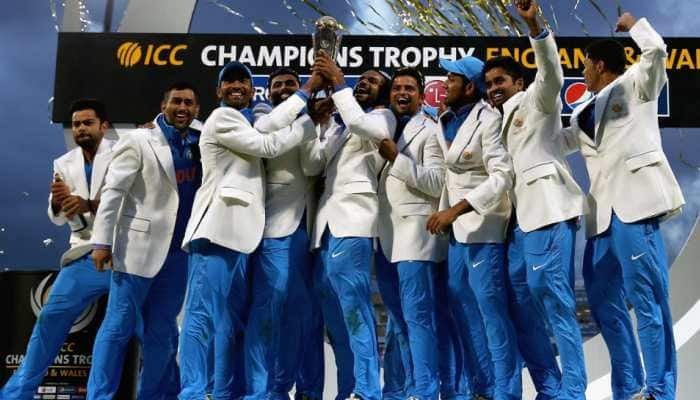National Epilepsy Day 2023: Fighting Stigma Necessary To Reduce Trauma - Doctor Explains Treatment
A chronic disorder of the brain, epilepsy with its frequent seizures and fits can severely affect the quality of life of an individual. It is important to timely and rightly diagnose the disease and avail treatment, say experts.
- Epileptic seizures are caused due to sudden, excessive and abnormal electrical discharges in the brain cells
- Public perception of people with epilepsy and the stigmas attached to the neurological disorder are often more traumatic than actual seizures, doctor says
- Epilepsy can affect people of all ages; however, each individual has unique concerns and problems
Trending Photos
) Epilepsy is a chronic brain disorder (Image by Freepik)
Epilepsy is a chronic brain disorder (Image by Freepik) Epilepsy is a chronic disorder of the brain characterised by recurrent ‘seizures’ or ‘fits, and every year on November 17, India observes National Epilepsy Day to raise awareness about this disorder. Dr Aditya Gupta, Director – CyberKnife, Artemis Hospital, Gurugram, says, "Epilepsy is a disorder of the brain characterised by an enduring predisposition to generate epileptic seizures and by the neuro-biologic, cognitive, psychological, and social consequences of this condition. The seizures are caused due to sudden, excessive and abnormal electrical discharges in the brain cells."
National Epilepsy Day: Fighting The Stigma
Dr Gupta explains that epilepsy can affect people of all ages; however, each individual has unique concerns and problems. To make matters more difficult for epilepsy patients, the associated stigma can make things tough. "Having seizures and epilepsy can definitely affect one's overall health, safety, relationships, work, etc., but the public perception of people with epilepsy and the stigmas attached to the neurological disorder are often more traumatic than actual seizures," says Dr Gupta. He adds, "This differentiation is crucial for better outcomes in treatment as non-epileptic events usually do not respond well to antiepileptic medications, and misdiagnosis leads to a delay in initiating appropriate therapy. Confirming or ruling out epilepsy not only prevents unnecessary treatment and exposure to interventions but also reduces patient and family anxiety and possibly unnecessary stigma."
Epilepsy Management And Treatment
"Unlike some bizarre and strange notions/stories prevalent about epilepsy in our country, we need to highlight it as a serious medical condition which requires immediate medical intervention and is mostly treatable with medications, particularly anticonvulsant drugs,
says Dr Gupta.
Talking about the treatment, Dr Gupta adds, "Usually, the type of treatment prescribed will depend on several factors, including the frequency and severity of the seizures and the person's age, overall health, medical history, etc. But, if the seizures are not controlled through medicines, surgery may be recommended. In fact, for thousands of epilepsy patients, brain surgery can be the best option to end seizures. It may significantly improve the patient's quality of life."
Dr Gupta mentions that numerous types of surgery are available to treat epilepsy including:
Resective Surgery: It is the most common type of surgery for treating epilepsy. Using resective surgery, a surgeon can surgically remove the part of your brain where seizures happen. They remove an area, a brain lesion or a brain lobe, which is roughly the size of a golf ball. The most common type of resective surgery is a temporal lobectomy. It is also the most successful form of surgery for epilepsy which reduces the number of seizures while limiting your risk of permanent brain damage.
Deep Brain Stimulation Surgery: Deep brain stimulation (DBS) therapy is a surgical treatment which aims to reduce seizures not controlled with medication and where surgery to treat the cause of seizures is not possible. It is ideal for people whose epilepsy is difficult to treat, and who cannot have epilepsy surgery to separate or remove the part of the brain that causes seizures. DBS therapy involves implanting electrodes into specific areas of the brain and then stimulating these areas with small regular electrical impulses.
Also Read: WARNING signs of epilepsy that you shouldn't ignore - check symptoms and treatment
National Epilepsy Day: Timely Treatment Is Key
Sharing some key data about India, Dr Gupta says, "According to the World Health Organization (WHO), about 50 million people have epilepsy across the world, out of which approximately 10 million people are in India. Although epilepsy is treatable, three-fourths of affected people in developing countries fail to receive the required treatment on time- it could be due to a lack of resources or ignorance and lack of awareness." The doctor adds that the critical thing about epilepsy is that one should not delay and initiate the treatment as soon as it is diagnosed. This can prevent any further deterioration of the condition.
Stay informed on all the latest news, real-time breaking news updates, and follow all the important headlines in india news and world News on Zee News.
Live Tv







)
)
)
)
)
)
)
)
)
)
